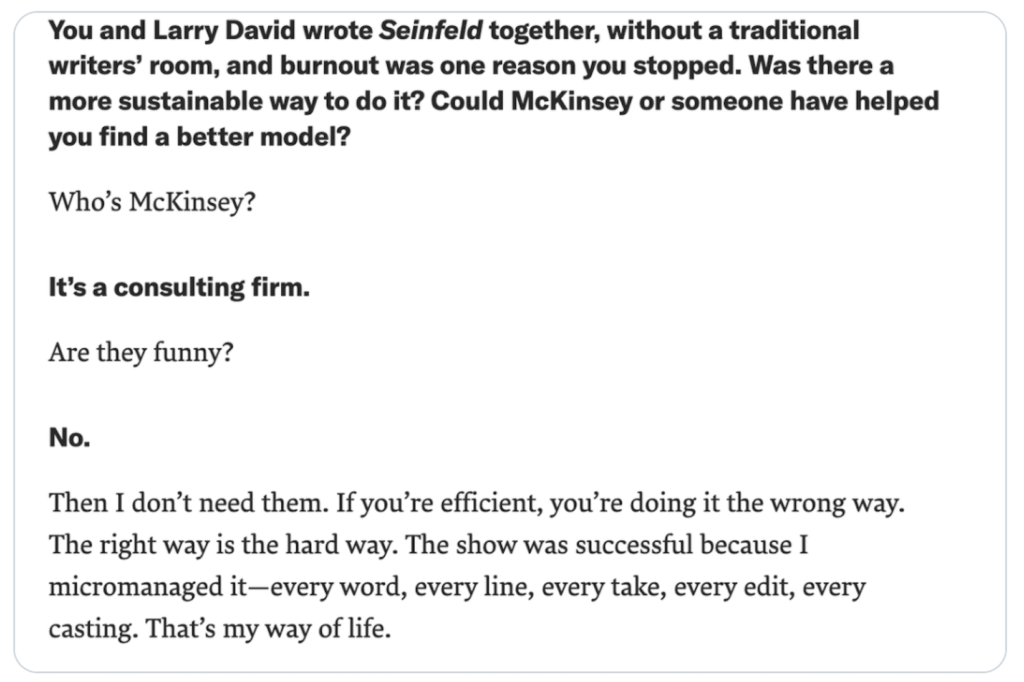It seems like being an ‘inclusive’ employer would be super easy! You just accept everyone! Can’t we all just get along!?
The reality is, being an inclusive employer is hard, because being inclusive isn’t about accepting everyone. What!? Oh, great, Tim has finally lost his mind, buckle-up!
I wrote a post about Jeff Bezos’s annual letter and how he lays out a great framework for how organizations and leaders should management performance. Many people liked the post, but there was also a strong reaction from a lot of people who hate Amazon’s culture.
They hear and read media accounts of Amazon being a bad place to work. About Amazon’s hard-charging, work a ton of hours, you don’t have a great work-life balance, etc. Some people go to work for Amazon and tell themselves during the interview process that “yeah, I’ve heard the stories, but I’m different, I want this, I want to be a part of a giant brand like Amazon, I can handle it because it’s a great step in my career.”
That’s when they find out they actually lack self-insight and they should never listen to their inner voice because it lies to them!
So, what does this have to do with ‘inclusion’?
If you truly believe in inclusion, you then believe that Amazon is a great place to work, for those who desire that type of culture. It might not be a culture you would ever choose to work. Amazon actually likes the people that self-select out! It makes their job easier because they don’t want you anyway!
If you stand up and shout Amazon is an awful employer, you don’t understand inclusion. No one forces you to got to work at Amazon, and Amazon does not hide who they are. In fact, Amazon might actually be the best company on the planet to show exactly who they are as an employer and what you’re signing up for if you decide to go to work there.
Amazon is giant and the vast majority of its employees love working for them. Those employees thrive in that environment. It’s what they were looking for. It’s how they are wired. If you put them into another what you might consider, ’employee-friendly’ environment, they would hate it and fail.
Inclusion is hard because it forces you to think in a way that theoretically every environment is potentially a good fit for the right person. We struggle because in our minds something that is opposite of what we want must be bad. Because it’s so hard for us to even consider someone else might actually love an environment we hate.
Being an ‘inclusive’ employer is about accepting all types of people (race, gender, religion, etc.), but it’s also about only accepting all of those people who actually fit the culture you have established. That’s the hard part! Amazon accepts everyone, but you better be ready to go a thousand miles an hour and never stop.
Being an inclusive employer is hard because if it’s done right, it’s not just about being an accepting employer of all, it’s about being accepting and then only picking those candidates who actually fit your culture. The outcome can be awesome. The work to get there can be overwhelming. And if done incorrectly you go from being inclusive to exclusive.




